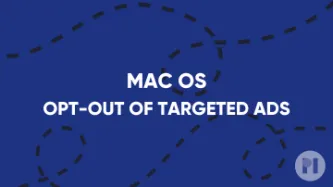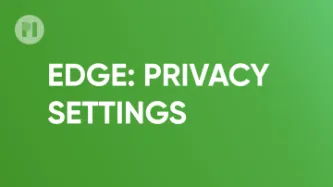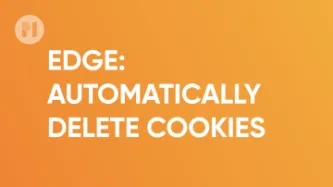Search
Content type: Long Read
Governments are increasingly relying on data-intensive systems, both to wage wars and to administer public services. These systems, increasingly provided by the same firms using similar tools, will come to affect our day-to-day lives whether we are in war zones or town squares. This is the era of Militarisation of Tech.The technologies that our governments rely on to deliver services and pursue their objectives are becoming increasingly data-intensive and militarised, which threatens our…
Content type: Long Read
Legal regimes governing situations of armed conflict and peace time have traditionally been clearly defined, leaving little to no doubt as to which regime applies to what situation. However, the Militarisation of Tech challenges this tidy distinction. Instead we are seeing the blurring of lines between actors, technologies, and the areas of deployment, financing, export, and regulations of certain technologies. This growing overlap between on the ground and remote, between war and peace,…
Content type: Long Read
Governments are rapidly militarising our societies. They are already increasing military spending, undermining civil rights protections, and reducing social protection programmes. Governments already depend on the private sector for delivering public services, through public-private partnerships.Now they are looking to the tech industry to design the next generation battlefield. As new technologies are at the core of this shift, industry is keenly adapting.Big Tech firms are militarising,…
Content type: News & Analysis
We’ve been warning for a while now about the risks of AI Assistants. Are these assistants designed for us or to exploit us?The answer to that question hinges on whether the firms building these tools are considering security and privacy from the outset. The initial launches over the last couple of years were not promising.Now with OpenAI’s agent launch, users deserve to know whether these firms are considering these risks and designing their service for people in the real world. The OpenAI…
Content type: News & Analysis
Layla looks at her calendar on her phone. She’s in charge of planning her book club’s monthly meeting. After thinking for a second, she summons her AI assistant: “Hey Assistant, can you book me a table at that tapas restaurant I read about last week, and invite everyone from the book club? The restaurant should be in my browsing history. Let me know if the journey is more than 1-hour for anyone”. As the assistant compiles a response, she wonders if anyone else will hear this.Technology has made…
Content type: Long Read
“Hey [enter AI assistant name here], can you book me a table at the nearest good tapas restaurant next week, and invite everyone from the book club?” Billions of dollars are invested in companies to deliver on this. While this is a dream that their marketing departments want to sell, this is a potential nightmare in the making.Major tech companies have all announced flavours of such assistants: Amazon’s Alexa+, Google’s Gemini inspired by Project Astra, Microsoft’s Copilot AI companion and…
Content type: Long Read
On 13 March 2025, we filed a complaint against the UK government challenging their use of dangerous, disproportionate and intrusive surveillance powers to undermine the privacy and security of people all over the world. Here, we answer some key questions about the case and the recent events that led to this development.Note: This post was last updated on 13 March 2025.What’s the fuss about?A month ago, it was reported that the UK government demanded Apple Inc – maker of the iPhone, iPads, Macs…
Content type: Long Read
What happened?On 19 July 2024, American cybersecurity company CrowdStrike released an update to its CrowdStrike Falcon software that ultimately caused 8.5 million computers running Microsoft Windows to crash. The damage done was both deep and wide: deep because the computers affected were unable to recover without direct user intervention. Wide because a whole range of companies - from airlines to healthcare to media - across a whole range of countries - from Sweden to India to New Zealand -…
Content type: Long Read
IntroductionHarnessing new digital technology to improve people’s health is now commonplace across the world. Countries and international organisations alike are devising digital health strategies and looking to emerging technology to help solve tricky problems within healthcare. At the same time, more and more start-ups and established tech companies are bringing out new, and at times innovative, digital tools aimed at health and wellbeing.
Content type: Explainer
Behind every machine is a human person who makes the cogs in that machine turn - there's the developer who builds (codes) the machine, the human evaluators who assess the basic machine's performance, even the people who build the physical parts for the machine. In the case of large language models (LLMs) powering your AI systems, this 'human person' is the invisible data labellers from all over the world who are manually annotating datasets that train the machine to recognise what is the colour…
Content type: Explainer
With more and more connected devices around us, the chance that you've been hit by an update notification is high. But what do these software updates do? How do they actually work, and why are they important?
Hardware and Software
Modern electronic devices require two main parts to function: the hardware and the software. The hardware usually refers to physical electronic pieces inside a device (usually a collection of microchips, logic gates and specialised processing chips, such as those to…
Content type: News & Analysis
As Amnesty International and Forbidden Stories continue to publish crucial information about the potential targets of NSO Group’s spyware, we know this much already: something needs to be done.
But what exactly needs to be done is less obvious. Even though this is not the first time that the world has learned about major abuses by the surveillance industry (indeed, it’s not even the first time this month), it’s difficult to know what needs to change.
So how can the proliferation and use of…
Content type: Long Read
One of the most exciting aspects of being a campaigning organisation today is developing new ways to work with people. We enjoy devising and testing new ways to reach and engage with people, hear their concerns, and channel their voices towards our shared adversaries.
It's also an exciting challenge to undertake all of this while protecting the people you are working with. This also means working to protect people's data.
At PI we think hard on this, and struggle openly in many of the right…
Content type: Guide step
Opt out of targeted ads
We have written before about the risks that targeted advertisements pose in regards to your digital privacy. To opt out of targeted ads on Windows, open the Start menu, go to Settings > Privacy > General, and disable all options (Fig. 1).
Content type: Guide step
Cómo desactivar los anuncios personalizados
Ya hemos escrito antes sobre los riesgos que suponen los anuncios personalizados para tu privacidad digital. Para cancelar los anuncios personalizados en Windows, abre el menú Inicio, ve a Configuración > Privacidad > General y desactiva todas las opciones (Fig. 1).
Content type: Guide step
uBlock Origin (que no debe confundirse con uBlock, que es un proyecto diferente) es un bloqueador de anuncios independiente y de código abierto que utiliza una lista depurada de servidores, y evita que tu navegador se conecte a estos servidores para mostrarte anuncios.
Nota: En el mercado hay muchos bloqueadores de anuncios y puedes ensayar alternativas. Al utilizar un bloqueador de anuncios independiente, de código abierto y gratuito, es más probable que evites usar productos con conflictos…
Content type: Guide step
Ad Blockers aim to prevent your browser from connecting to Ad servers and loading ads on webpages you are visiting. They can also block some parts of webpages that likely display ads. Blocking ads and connections to ad servers can help minimise the amount of data that the Adtech industry collects about you for targeted advertising.
Warning: Using an ad-blocker may cause some pages to display incorrectly or not at all. This guide also shows how you can modify the Ad Blocker's behaviour to allow…
Content type: Guide step
Para acceder a las configuraciones, haz clic en el menú de tres puntos de la parte superior derecha y pulsa Configuración > Privacidad, búsqueda y servicios (Fig. 1), o escribe edge://settings/privacy en la barra de direcciones URL y haz clic en intro.
Content type: Guide step
To access the settings, click on the three-dot menu on the upper right and then press Settings > Privacy, search, and services (Fig. 1), or type edge://settings/privacy in the URL bar and press Enter.
Content type: Guide step
Privacy Badger es una extensión para el navegador que bloquea los anuncios y los rastreadores para evitar que las empresas rastreen tus actividades en línea. Esta extensión lleva una lista actualizada de los rastreadores que detecta mediante pruebas automatizadas (que se hacen a través de servidores especializados y no desde tu computador) y periódicamente envía la lista actualizada a tu navegador. De este modo, cada vez que detecta nuevos servidores de anuncios (por ejemplo, si una nueva…
Content type: Guide step
Online trackers are small bits of code embedded directly into a website's main code which collect data points about you and your browsing activity. This may include the pages you visit, how long you spend on them, where you scroll and the links you click on. On top of the online advertising industry, there are other actors that can potentially make use of trackers to track your online activity, including governments and/or law enforcement agencies.
There are extensions you can add to your…
Content type: Guide step
Browser cookies allow websites to preserve session data such as your login credentials or items in your shopping basket so that you don't lose information when you close the page. Unfortunately, cookies are also often abused to track your online activity across the web. Using a dedicated addon, you can clean your cookies regularily to ensure that no unwanted cookie is kept in your browser, limiting the efficiency of online trackers.
This guide takes you through the steps to install Cookie…
Content type: Guide step
Las cookies permiten que los sitios web guarden los datos de una sesión, como las credenciales de acceso o los artículos en el carrito de compras, con el propósito de que no pierdas la información al cerrar la página. Desafortunadamente, con frecuencia se abuse de las cookies para rastrear tu actividad en línea en la web. Utilizar una extensión especializada te permite limpiar las cookies con regularidad para asegurarte de que tu navegador no guarde ninguna cookie no deseada, lo que permite…
Content type: Examples
As working from home expands, employers are ramping up surveillance using the features built into software such as Microsoft Teams and Slack, which report when employees are active, or requiring employees to attend early-morning video conferences with webcams switched on. In early 2020, PwC developed a facial recognition tool to log when employees are away from their home computer screens.
Source: https://www.theguardian.com/world/2020/sep/27/shirking-from-home-staff-feel-the-heat-as-…
Content type: Examples
In October UK health officials discovered that limitations on the number of rows on an older version of Microsoft’s spreadsheet software Excel led the system to miss 16,000 positive coronavirus tests and fail to alert an estimated 50,000 people who had been in close contact with them that they should quarantine. About half of the missed cases are thought to have been in northwest England, where infection rates were already rising. The government’s science advisors recommended revamping the…
Content type: Explainer
The lead author of this piece is Elettra Bietti, a doctoral student at Harvard Law School and volunteer for Privacy International
Network effects
Social media companies and other digital business models are driven by so-called network effects. A network effect (also called a network externality) is a service’s propensity to improve functionally as the number of people using it and the amount of data collected through it increases. For example, as the number of Facebook users increases, Facebook…
Content type: Examples
Hours before OpenDemocracy filed suit to compel the UK government to release all the contracts governing its deals with a list of technology firms including Amazon, Microsoft, Google, Palantir, and Faculty, the UK government released the contracts. Faculty is being paid more than £1 million to provide AI services for the NHS, and the companies involved in the NHS data store project, including Faculty and Palantir, were originally granted intellectual property rights and were allowed to train…
Content type: Long Read
Over the last two decades we have seen an array of digital technologies being deployed in the context of border controls and immigration enforcement, with surveillance practices and data-driven immigration policies routinely leading to discriminatory treatment of people and undermining peoples’ dignity.And yet this is happening with little public scrutiny, often in a regulatory or legal void and without understanding and consideration to the impact on migrant communities at the border and…
Content type: Examples
Contact tracing apps will only work effectively if people trust them and install them in sufficient numbers. Soon after its launch, however, the North Dakota contact tracing app people were already dropping it after posting complaints in the Google App store. In a survey of 798 Americans, researchers at Microsoft Research, Johns Hopkins University, and the University of Zurich found that nearly half said they would not install a COVID-19 contact tracing app that has false negatives or could…
Content type: Long Read
Photo by Cade Roberts on Unsplash
For those of you who don't spend the most productive part of your day scanning the news for developments about data and competition, here's what has been going on in the UK since summer 2019.
Basically, the UK competition authority started an investigation into online platforms and digital advertising last summer, and issued their preliminary findings in December 2019, concluding that Facebook and Google are very powerful in the search engine and social media…























